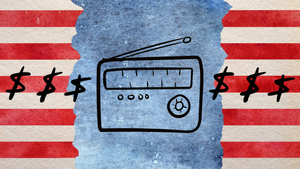The campaign to get AM/FM radio stations in the US to pay royalties to artists and record labels was back in the spotlight in Washington yesterday at a hearing of the House Judiciary Committee’s intellectual property panel. US copyright law is unusual in that it obliges radio stations to pay royalties to songwriters and music publishers, as you would expect, but not artists and labels. The record industry wants that changed.
The radio sector’s usual arguments against a new royalty being introduced were expressed during yesterday’s hearing: airplay is free promo and that should be payment enough, and smaller local stations wouldn’t be able to afford any new royalty obligation.
The record industry then gave the customary explanations as to why those are rubbish arguments. Then the National Association Of Broadcasters threw a couple of other arguments into the mix, which weren't great, but were, at least, different.
SoundExchange CEO Michale Huppe, speaking for the record industry, responded to the free promo argument by pointing out that “72% of music played on the radio is not current and therefore not promoting new music at all”.
Even where there is promo benefit to airplay, he went on, that “does not justify a wholesale, un-permissioned taking of another’s property”. After all, he pointed out, when a movie studio turns a book into a film, that provides promotion for the book, but the studio still gets a licence from the book’s author and publisher.
Randy Travis and his wife Mary Travis also attended the hearing. She spoke on behalf of her husband who, after a stroke in 2013, has Aphasia which makes it difficult for him to speak. Mary acknowledged how, in the 1980s, Randy trekked “thousands of miles across the country to visit radio stations and deliver copies of his newest cuts on cassette in hopes of having his music heard”.
However, she said, the world has changed. “The ‘do or die’ promotional aspect provided by radio to artists, long argued as the reason to keep the status quo, no longer holds water”, Mary argued. Airplay is no longer required to sell records and CDs because, in the streaming age, “folks can hear all the music they want, on demand, for pennies a day”.
As for the argument that smaller local radio stations can't afford to pay a new royalty, supporters of the American Music Fairness Act, the latest legislative proposal that would introduce that royalty, say the act means that smaller stations would pay a nominal fixed amount.
Huppe also told Congress members that groups representing “a broad coalition of community stations” all support the act and “believe performing artists deserve to be paid for their work”. These include the Alliance For Community Media, Common Frequency, Media Alliance and the National Federation Of Community Broadcasters.
However, Curtis LeGeyt, boss of the National Association Of Broadcasters, was adamant that, even with the provisions for small radio stations in the American Music Fairness Act, the proposed new royalty would “jeopardise jobs, require radio stations to cut back their involvement in local communities and place more pressure on radio stations already struggling to survive”.
The American record industry has been trying to get a radio royalty into copyright law for decades. That fact was somewhat used against the music community elsewhere in LeGeyt’s speech once he started making other arguments against the royalty.
Congress should focus on reforming copyright law in the context of new technologies not old technologies, he said. Plus, this debate has dragged on for so long that we are now in a position where record industry revenues are growing and the radio industry is struggling.
“Congress has consistently focused its major copyright reforms on updates to law that are needed to account for new or emerging technologies - not mediums that have existed for more than 100 years”, LeGeyt proclaimed, noting a century’s worth of reforms prompted by things like player piano rolls, copy machines, VHS recordings, streaming services or search engines.
“It would be unprecedented for Congress to upend copyright laws that have governed decades-long relationships, on which entire industries have been built to the mutual benefit of
stakeholders as well as the public, and where the fundamental nature of each remains intact”, he continued.
The record industry is generating record revenues, he went on, while “radio’s advertising-supported model continues to be stifled by big tech’s market dominance. While broadcast radio has certainly recovered from the depths of the pandemic, our advertising revenue remains down nearly 15% in 2023, compared to 2019, and this trend is not projected to reverse”.

